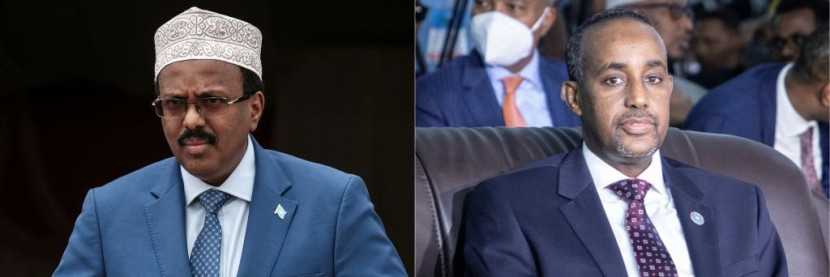
Somalia residents fear the possibility of political violence after the country's president, Mohamed Abdullahi Mohamed Farmajo, suspended Prime Minister Mohamed Hussein Roble over the latter's corruption allegations against the region's leader.
The situation has prompted calls from the United States and the United Kingdom urging for the officials to calm down. In a statement released on Monday, the presidential office said that the prime minister was accused of "an ongoing investigation on corruption and abuse of public land."
Threat of Political Violence
The statement added that the prime minister's duty and powers will remain suspended until the conclusion of the investigations. On top of the president's allegations against Roble, the country's leader also said that the prime minister tampered with the investigation by pressuring the country's defense minister who was leading the investigation.
In a response post on Twitter, the Prime Minister's office said that Farmajo's actions were a complete "violation of the constitution and other laws." The statement added that Roble was carrying out his constitutionally mandated day-to-day duties and was fully committed to fulfilling his national responsibility to "conduct an acceptable electoral process that culminates in a peaceful transition of power," CNN reported.
The power struggle between the two officials has been going on for some time and the recent allegations made by President Farmajo were called "outrageous'' by Roble's office. In a Facebook post, assistant information minister Abdirahman Yusuf Omar Adala, an ally of the prime minister, said the president's actions were an "indirect coup."
In a statement, the United States Embassy urged the two sides to de-escalate the situation, calling on them to take immediate steps to mitigate tensions in Mogadishu and avoid provocative actions and violence, the Daily Beast reported.
Refusal to Acknowledge
Roble refused to acknowledge or follow Farmajo's order and said he would continue being the region's prime minister. He also accused the president of deploying troops to attack his office and those of the cabinet to prevent them from carrying out their formal duties.
The growing fears were echoed by foreign governments and international observers on Monday, who argued that the recent incident could stoke another cycle of violence after Somalia has already endured decades of fighting.
In April, the simmering political impasse transitioned into violence in the streets after the president signed a law that extended his term in office by two years. Farmajo's rivals and his Western allies denounced the decision, with some residents saying it could reverse the minor progress in democracy within the country.
In the end, Farmajo asked Parliament to nullify the extension and request that Roble assist in organizing the delayed elections. On Monday, the premier called Farmajo the "former president" and said that the president's mandate technically lapsed in February of this year.
The country of Somalia is driven by clan politics, with analysts saying that the rift between the president and the prime minister threatens to escalate and become full-on violence. They fear that it could involve not only their supporters but also their clansmen since they belong to different clans, the New York Times reported.
Related Article:
14-Year-Old Girl Shot Dead by Stray Bullet After Police Fire at Armed 24-Year-Old Male Suspect








